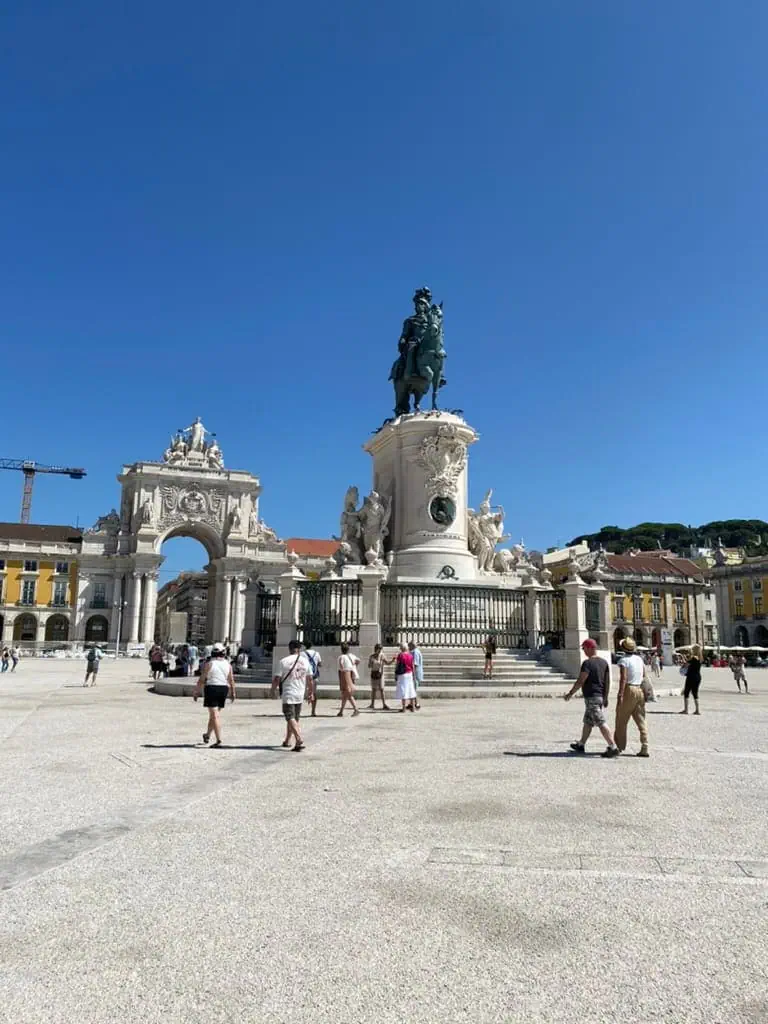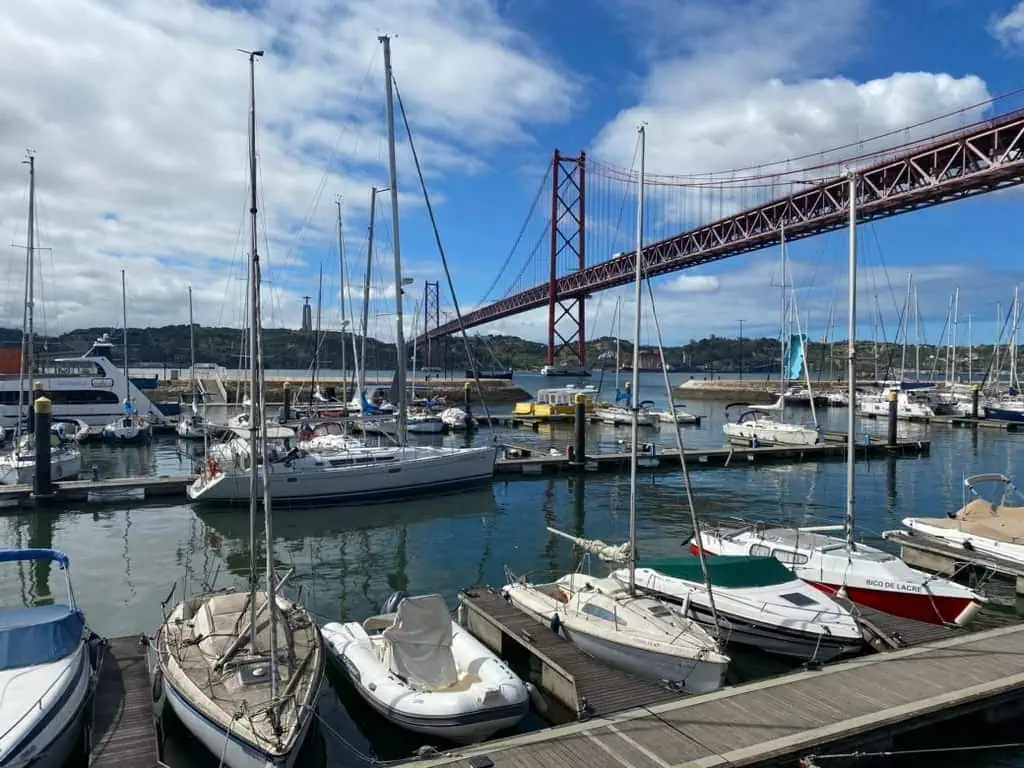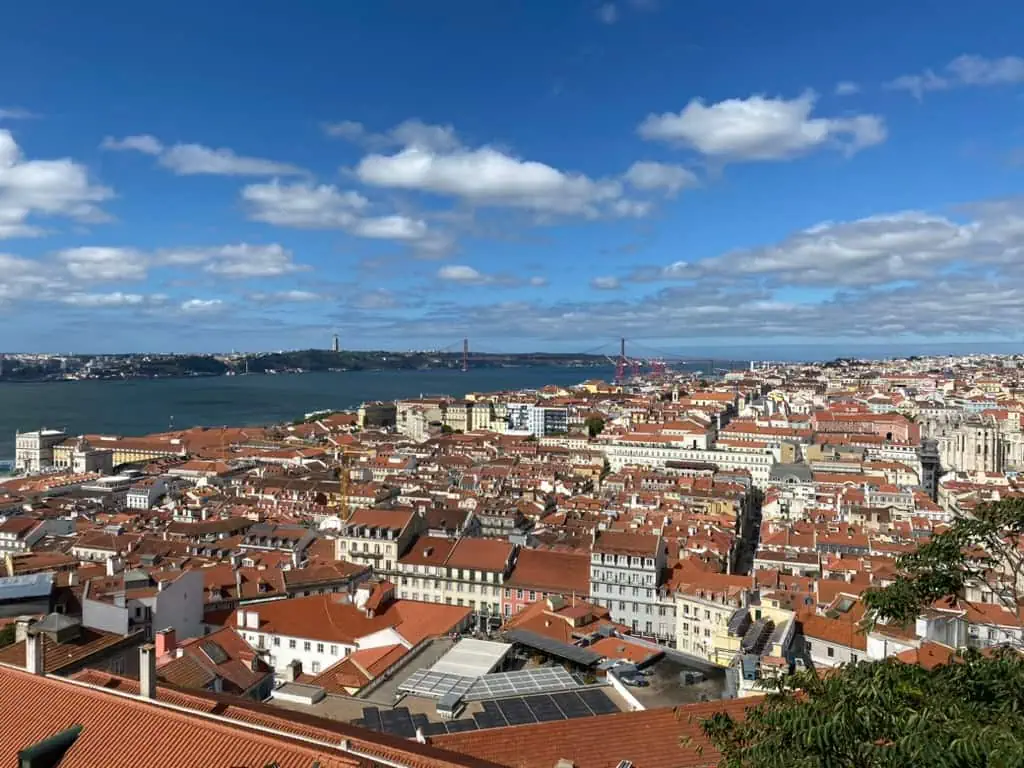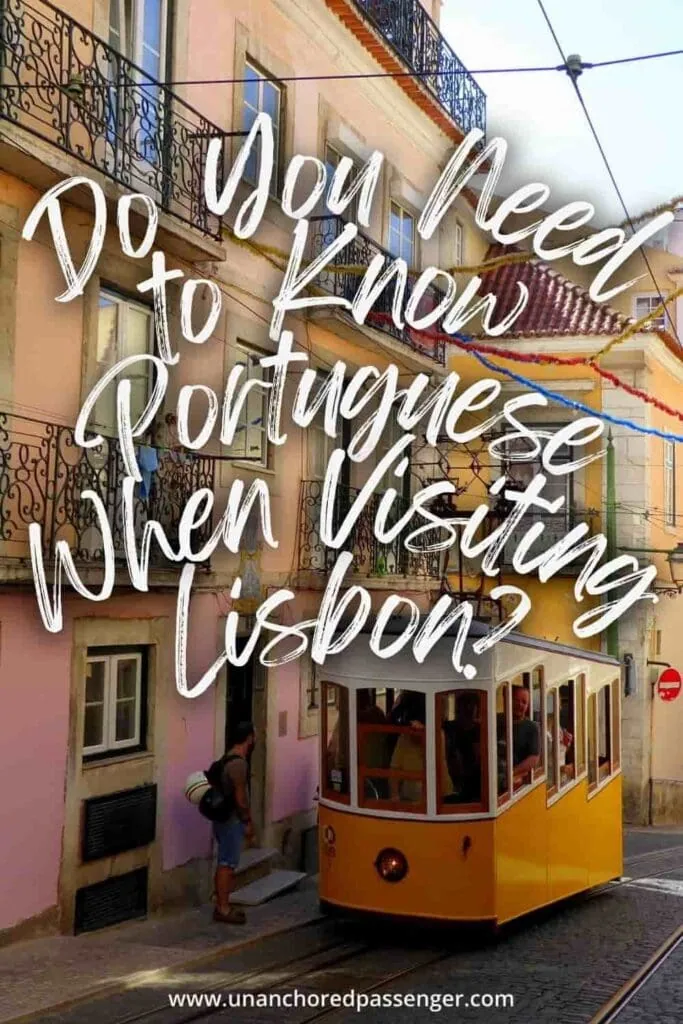Do They Speak English in Lisbon? What to Know in 2026
Whether you’re moving to Lisbon or planning a visit, it can be stressful figuring out how to navigate the language barrier. Fortunately, locals and immigrants alike widely speak English in Lisbon.
I personally spent about 5 weeks working remotely from Lisbon last year and had minimal issues with the language barrier.
Do They Speak English in Lisbon in 2026?
Here are my insights on speaking English in Lisbon after staying there for over a month last year.
Where can I expect to find locals speaking English in Lisbon?
A large majority of people in Lisbon speak English very well. Many Portuguese started learning English in school at a young age. Plus, in Portugal, they don’t typically dub over movie or TV audio like they do in other countries, so everyone is used to hearing English.
At the airport, train stations, and major bus stations, you'll often find signs written in both Portuguese and English.
Of course, people working in the tourism industry in Portugal will have exceptional English. You don’t have to worry about a language barrier with hotel staff, tour guides, or most restaurant workers. But even folks not working in tourism tend to have great English as well.
English is so widely spoken in Lisbon, in fact, that I’ve heard many people who immigrate there complain that it can be hard to learn Portuguese because they aren’t forced to speak it as much as they thought they would.

Where might I encounter issues with a language barrier?
While it seems that a majority of people speak English in Lisbon, that’s not the case for everyone. Whenever I encountered anyone who didn’t know English, it seemed to often be folks from an older generation who hadn’t had the same opportunities to learn English as the younger generations have.
If you take a taxi with an older driver, you might find that they don't know English. Always have where you're headed written down, and you should be fine.
If you go somewhere visited by more locals, you may also potentially encounter a language barrier. For instance, one day I got my nails done in a residential area of the city that’s not as popular with tourists, and my nail technician did not know English.
In addition, if you travel outside of Lisbon, you may find fewer people speaking English, particularly if you visit less touristy towns or cities.
What tips do you have for navigating a situation where I encounter someone who doesn’t speak English in Lisbon?
Of course, whenever you travel to another country where English isn’t the first language, it’s good to be prepared to navigate that situation, even if you’re visiting a place like Lisbon where English is widely spoken.
I recommend downloading the Google Translate app on your phone and then downloading Portuguese so you can use it offline without data.
Use the app to look up words and phrases, and if you’re comfortable, try to say them out loud. If not though, you could always hold up your screen for the person to see.
I’ll add that while some locals may not know English, they may know Spanish. With Spain being so close and the languages being fairly similar, many Portuguese can at least understand some Spanish. It’s worth a shot to see if they know or can understand Spanish and you can communicate that way.
Overall, you likely won’t encounter a language barrier much, if at all, if you’re only visiting. If you do, trying to say at least a few words in Portuguese and generally having a friendly demeanor helps.

Should I learn any Portuguese before I visit Lisbon?
While you don’t necessarily have to learn any Portuguese before visiting Lisbon, I recommend you learn at least a few things. Trying to speak the local language goes a long way and locals will appreciate it.
What are some key Portuguese words and phrases to know?
Here are some key words and phrases to learn before you visit. I used many of these myself in the 5 weeks I was in Lisbon and found them to be helpful.
- Olá: hello
- Por favor: please
- Obrigado/obrigada: thank you (end in “o” if you are male and “a” if you are female)
- Sim: yes
- Não: no
- Bom dia: good morning
- Boa tarde: good afternoon
- Boa noite: good evening
- Adeus or tchau: goodbye
- Com licença: excuse me (passing through a crowd and people are in the way)
- Desculpe: escuse me (to get someone’s attention)
- Fala inglês?: Do you speak English?
- Queria ____, por favor: I would like ____, please.
- Quanto custa?: How much does it cost?
- Um/uma: one
- Dois/duas: two
- Três: three
Portuguese pronunciation can be tough (and know that it’s very different from Spanish pronunciations even if the words look similar). Look up some YouTube videos and practice, but once you’re in Portugal, just do your best.
Plenty of visitors only speak English in Lisbon and don’t try to learn any Portuguese. Whatever little you do learn, no matter how poorly pronounced, will be appreciated.

How can I learn some Portuguese before I visit?
While it's not necessary to learn much Portuguese before you visit, if you'd like to learn more, it's certainly appreciated and there are a number of resources to help you do so.
European vs. Brazilian Portuguese
First off, whatever you do, make sure to learn European Portuguese. Since Brazil is so much bigger, many Portuguese learning resources tend to teach Brazilian Portuguese and not European Portuguese. The two dialects are very different, so much so that Brazilians and Portuguese can have a hard time understanding each other.
YouTube
To learn some Portuguese, I recommend checking out Talk the Streets on YouTube. The founder, Liz, has countless videos helping to teach European Portuguese. You can learn quite a bit from her videos, but if you’re more serious and want to take an actual course, she has one as well.
Language-Learning Apps
I’ve also liked the language learning apps Memrise, Drops, and Practice Portuguese.
Memrise tends to teach you helpful phrases that you’d actually use (not like another app where I recently learned “The witch likes to go camping in the woods” in German… 👀).
Drops uses short games to help teach you essential words and phrases. I appreciate that the games on Drops are fairly short, so it’s easy to spend as much or as little time on the app as you’d like.
Practice Portuguese is probably the best app for learning European Portuguese, but unlike Memrise and Drops, it does not have a free version and costs $15 per month.
Lastly, while I haven’t tried it myself yet, I’ve heard nothing but great things about italki. This app allows you to find affordable 1-1 language lessons with anyone in the world. There are a number of highly rated European Portuguese tutors on the app, sometimes teaching for less than $10 a lesson.
I personally am considering potentially moving to Lisbon. If I do, I'll likely work on my Portuguese using a combination of these resources plus more formal lessons.

Where can I take Portuguese lessons while I’m in Lisbon?
If you’re going to be in Lisbon for an extended amount of time and want to take formal lessons, there are numerous language schools all over the city.
I’ve personally looked into Portuguese Connection. They offer intensive, part-time, and online courses. As I’m considering potentially moving to Portugal, I’ve specifically looked into their online course so I can learn more before my move and can then transition to in person courses with them once I’m there.
Where to Stay in Lisbon
With so many options all over the city, it can feel overwhelming choosing where to stay in Lisbon. Here are some places I recommend:
📍Budget Option: Yes! Lisbon Hostel has a social atmosphere with a variety of activities guests can book. Guests say they felt the hostel was clean and a great place for solo travelers.
📍Mid-Range Option: Guests rave about the central location of Rossio Boutique Hotel. It's located close to many tourist attractions as well as public transit.
📍Luxury Option: Stay in a former palace at Palácio Ludovice Wine Experience Hotel, located on the edge of Bairro Alto near Príncipe Real. It's absolutely stunning inside and they give you a free glass of port and some desserts with your stay. I spent one night there with my mom, and it's one of my favorite hotels I've ever stayed in.
Conclusion: Do they speak English in Lisbon in 2026?
To wrap up, many Portuguese speak English in Lisbon, and you can generally expect to communicate without any issues. That said, you should do your best to learn a few Portuguese words and phrases before you go, even if it’s just hello, please, and thank you.
Of course, if you’re planning to stay in Lisbon more permanently, then you absolutely should do your part to learn the language to help you better integrate into the city.
Planning a trip to Lisbon? Check out my Ultimate Guide to Lisbon, Portugal and learn about paying with cash and find out if you need cash in Lisbon.
Planning a Trip to Portugal? Check Out These Related Posts



